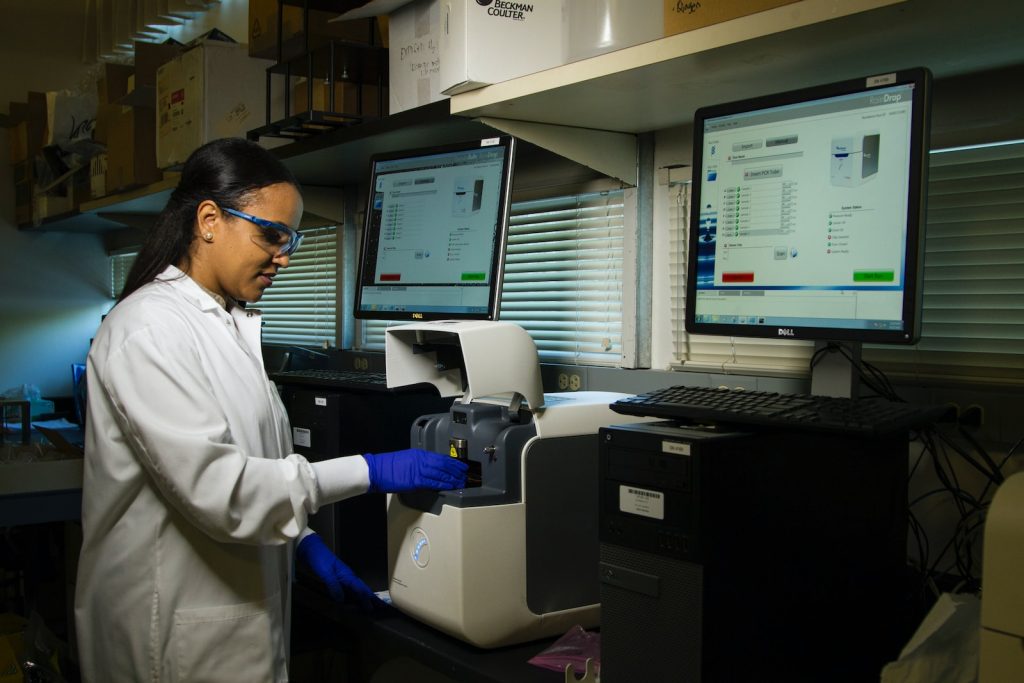As the world continues to evolve, so do the ways in which we receive medical care. Technology has changed how healthcare is being administered and Artificial Intelligence (AI) is at the forefront of this revolution. AI has transformed healthcare IT in innumerable ways and its applications are only increasing as technology advances. From diagnosing diseases to creating personalized treatments, AI is revolutionizing the way doctors and patients interact with each other. In this article, we explore how AI is transforming healthcare and how it’s changing the lives of both doctors and patients.
Benefits Of AI In Healthcare
AI has already started revolutionizing healthcare, and the potential benefits are huge. Automation of mundane tasks such as data entry and appointment scheduling is freeing up precious time for medical professionals, allowing them to focus on more important endeavors. AI-driven diagnostics can provide faster and more accurate results than traditional methods, and AI-powered tools can help identify diseases that were previously difficult to diagnose.
AI is a powerful tool for monitoring patient health, too, by tracking vital signs in real time and alerting medical professionals when something is amiss. AI-based analytics can also be used to predict outcomes for certain treatments or procedures, allowing medical staff to make data-driven decisions about care plans.
These advances in healthcare are only the beginning. As AI continues to evolve, so too will its use in healthcare; it has the potential to improve both the quality and efficiency of care while reducing costs at the same time. By leveraging the power of AI, we can look forward to a future where healthcare is safer, smarter and more efficient than ever before.
Challenges Of AI In Healthcare
AI has the potential to revolutionize the healthcare industry, but it also presents some unique challenges. Chief among these is the fact that AI systems require a great deal of data in order to learn and make accurate predictions. Collecting this data can be difficult, especially since patient data is heavily regulated and must be managed carefully. Moreover, AI algorithms are only as good as the data they are trained on – if the datasets used to train an AI system are biased or incomplete, then its predictions may not be reliable.
Another challenge is that AI systems may not always act ethically when making decisions about patient care. For example, an AI system might recommend certain treatments based on cost rather than patient need; similarly, it could deny treatments for certain patients based on their race or gender. In addition, AI-driven healthcare decisions could exclude certain populations from receiving adequate care if they lack access to technology or do not have accurate data available about them.
Finally, there is also concern about how secure patient data will be once it is stored in an AI system. If hackers gain access to this information it could lead to serious privacy breaches and other issues. As such, healthcare organizations must take steps to ensure that their systems are properly secured and protected against malicious actors.
In light of these potential challenges, healthcare organizations must proceed carefully when implementing AI into their systems. To ensure that these technologies are used responsibly and ethically, organizations should focus on developing strategies for collecting reliable datasets, monitoring any biases in their algorithms, and protecting patient data from unauthorized access. Only then can we reap the full benefits of artificial intelligence in healthcare.
AI-Powered Diagnosis And Treatment

AI-powered diagnosis and treatment are revolutionizing healthcare. AI algorithms are capable of analyzing data from multiple sources, such as medical images, to detect patterns that can indicate a disease or disorder. This technology has the potential to reduce diagnostic errors and provide accurate, personalized treatments for patients.
AI is also being used in the development of novel drugs and treatments for conditions like cancer and diabetes. By utilizing machine learning techniques, AI systems can help medical professionals identify new targets for drug development. Moreover, AI models can be used to simulate how drugs interact with different parts of the body, leading to more effective medicines with fewer side effects.
AI is transforming healthcare in many other ways too – from automating administrative tasks to helping doctors make more informed decisions about patient care. As AI technologies advance, they will continue to play an increasingly important role in providing quality healthcare services that are both cost effective and efficient.
AI-Enabled Disease Monitoring
AI-enabled disease monitoring is revolutionizing healthcare. By using artificial intelligence to analyze medical data, doctors are able to develop more accurate and timely diagnosis. This helps them keep track of changes in a patient’s condition over time, allowing for personalized care and better outcomes.
For example, AI can be used to detect early warning signs of disease or changes in existing conditions. By analyzing patient data such as vital signs and lab results, AI can alert doctors when something is amiss, giving them the opportunity to intervene quickly with treatment or lifestyle modifications. AI-enabled disease monitoring also helps healthcare providers identify patterns that may indicate underlying issues that wouldn’t have been noticeable otherwise.
The possibilities are endless with this technology – it can be used to monitor everything from diabetes to heart disease, cancer and even mental health disorders. By enabling healthcare providers to get ahead of potential problems before they become severe, AI-enabled disease monitoring is transforming the way we approach long-term care and prevention.
AI-Assisted Medical Imaging
AI-assisted medical imaging is revolutionizing the field of healthcare. It’s allowing doctors to diagnose and treat conditions with unprecedented accuracy, while reducing the cost of diagnosis and treatment. With AI-assisted medical imaging, radiologists can now detect disease earlier than ever before, while also being able to identify more precise treatment plans.
AI-assisted medical imaging uses advanced algorithms to analyze images generated from medical exams such as x-rays, MRIs and CT scans. The algorithms are trained to detect patterns in the data that may indicate a health issue. This helps radiologists make more accurate diagnoses faster and more accurately than ever before. Additionally, AI-assisted imaging can help doctors identify potential treatments based on the data collected from previous scans or images taken of a patient’s body.
The implications of this technology are profound; it allows doctors to diagnose diseases sooner and with greater precision, ultimately improving patient outcomes and potentially saving lives. AI-assisted medical imaging is changing how healthcare is practiced today, making it easier for physicians to provide better care for their patients.
AI-Based Predictive Analytics
Artificial intelligence (AI) is making a big impact on healthcare, with AI-based predictive analytics being one of the most cutting-edge applications. Predictive analytics are allowing healthcare providers to better identify patterns and trends in patient data, helping them make more informed decisions about treatment and prevention.
Using AI-powered analytics, healthcare providers can scan vast amounts of patient data quickly, analyzing everything from a person’s medical history to demographic information. This helps them determine which treatments will be most effective for different patients and accurately predict potential health outcomes. Additionally, the insights drawn from predictive analytics can be used to develop evidence-based guidelines that lead to improved patient outcomes.
By introducing predictive analytics into healthcare settings, AI is helping to create more personalized care plans. It’s allowing doctors to target treatments more effectively based on individual patient needs and provide more accurate diagnoses while reducing costs and improving efficiency. Ultimately, it’s leading to better health outcomes for patients across the board.
AI-Powered Robotic Surgery

AI-powered robotic surgery is a revolutionary new way of treating medical problems. It has been developed to provide more precise and accurate treatments than traditional methods. Using AI technology, robotic surgical systems can be programmed to follow instructions and carry out complex surgeries with minimal invasiveness. This allows for surgery to be performed more quickly and accurately than ever before, while maintaining the safety of the patient.
Robotic surgical systems are equipped with cameras and 3D imaging software that allow the surgeon to have an unprecedented amount of control over the outcome of a procedure. This technology enables surgeons to conduct delicate procedures in difficult-to-reach areas without compromising on accuracy or safety. In addition, these systems are also able to reduce costs by automating repetitive tasks and providing real-time feedback during procedures.
The potential for AI-powered robotic surgery to revolutionize healthcare is immense. Not only does it present new opportunities for improved outcomes and cost savings, but it also provides physicians with greater access to data and information in order to make better decisions about patient care. As this technology continues to evolve, we can expect even greater advances in healthcare delivery in the future.
AI-Facilitated Wearable Devices
AI-facilitated wearable devices are revolutionizing the healthcare industry. By leveraging AI technology, they can provide more accurate and comprehensive data on patients’ health than ever before. These devices are designed to be unobtrusive and easy to use, so that people can track their health without having to visit a doctor. Moreover, they can detect changes in vital signs early on, allowing for a quicker response from medical professionals.
The AI-powered algorithms used by these devices are capable of analyzing patient data in real time and flagging any abnormalities that may indicate a health issue. This helps doctors identify potential problems earlier, increasing the chances of successful treatment. Furthermore, these wearables can also be used to monitor chronic conditions such as diabetes or heart disease more closely over time and adjust treatments accordingly if needed.
In addition to providing better monitoring capabilities, AI-enabled wearables offer personalized insights into individual patients’ health and lifestyle choices. By tracking activity levels, diet, sleep patterns and other factors, these devices can provide actionable recommendations for improving overall wellbeing. Ultimately, this technology has the potential to lead to improved outcomes for patients and better access to care for those living in remote areas who otherwise would not have access to medical resources.
Conclusion
AI technology is revolutionizing healthcare by providing more accurate diagnoses, improved patient monitoring, and better treatments. It is a powerful tool that can help healthcare professionals provide more personalized care to their patients. AI has the potential to make healthcare more efficient and cost-effective while also improving patient outcomes. However, there are still some challenges associated with the use of AI in healthcare, such as data privacy concerns and ethical issues.
In spite of these challenges, the future of AI in healthcare looks very promising. With its ability to automate mundane tasks and facilitate rapid decision making, AI can greatly enhance the quality of care provided by healthcare professionals. Additionally, it can help to improve accuracy in diagnosis and reduce medical errors. All in all, AI has a lot to offer when it comes to transforming healthcare for the better.
As we continue to explore the possibilities of this technology, it is important to consider both its potential benefits and drawbacks carefully before implementing it on a large scale. With the right safeguards in place, AI can help usher in a new era of precision medicine that will be beneficial for both patients and providers alike.
